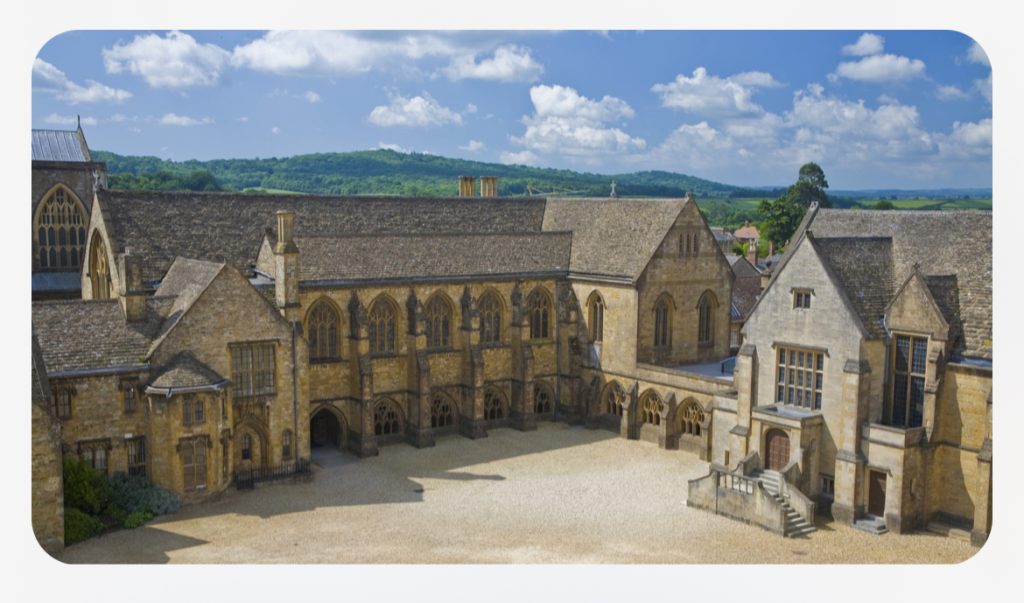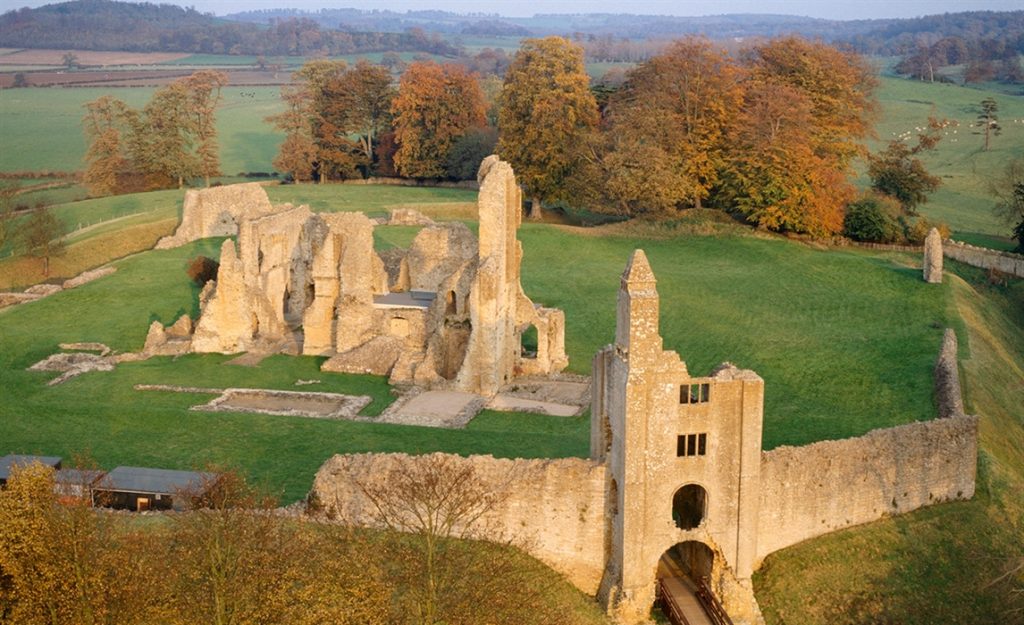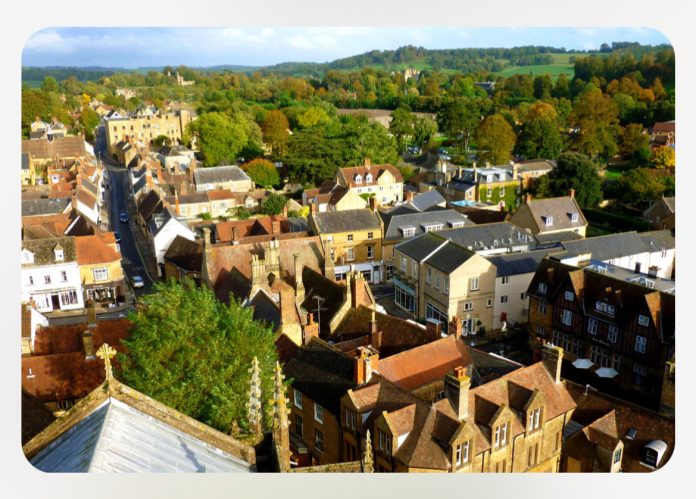Nestled in the heart of Dorset, England, Sherborne is a town steeped in history, culture, and charm. From its ancient Saxon origins to its medieval prosperity and beyond, Sherborne’s story is one of resilience, innovation, and community. This article aims to explore the rich tapestry of Sherborne’s past, tracing its evolution from a humble Saxon settlement to the vibrant town it is today.
Early History: Saxon Settlement to Abbey Foundation
The history of Sherborne dates back over a thousand years to its origins as a Saxon settlement known as Scirburne, meaning “clear stream.” The fertile lands surrounding the River Yeo attracted early settlers, who established a thriving community sustained by agriculture and trade. By the 8th century, Sherborne had gained prominence with the foundation of Sherborne Abbey in AD 705 by St. Aldhelm, the Bishop of Sherborne. The abbey served as a center of religious life, education, and culture, shaping the town’s identity for centuries to come.
Medieval Prosperity: Castles, Markets, and Guilds
The medieval period saw Sherborne flourish as a market town and administrative centre. Sherborne’s strategic location on the road between London and the Southwest made it a hub of trade and commerce. The town’s two castles, Sherborne Old Castle and Sherborne Castle, symbolised its wealth and power. Sherborne Old Castle, built in the 12th century, served as a formidable fortress before its eventual decline, while Sherborne Castle, constructed in the late 16th century by Sir Walter Raleigh, became a grand residence fit for royalty.
Sherborne’s market charter, granted in the Middle Ages, allowed it to hold regular markets and fairs, attracting merchants and traders from far and wide. The town’s guilds, such as the Merchants’ Guild and the Clothiers’ Guild, played a crucial role in regulating trade and craftsmanship, fostering a sense of community and cooperation among the townsfolk.
Turbulent Times: Civil War and Religious Upheaval
The 17th century brought turbulent times to Sherborne, as England was torn apart by civil war and religious strife. Sherborne, a Royalist stronghold, found itself besieged by Parliamentarian forces during the English Civil War. The town’s allegiance to the Crown led to its downfall, culminating in the surrender of Sherborne Castle in 1645 and the subsequent slighting of its fortifications.
The Reformation also left its mark on Sherborne, as religious tensions ran high and the power of the Church waned. Sherborne Abbey, once a beacon of Catholic worship, was dissolved in 1539 as part of Henry VIII’s dissolution of the monasteries. Despite this upheaval, the abbey survived as a parish church, preserving its architectural splendor and spiritual significance.
Industrialisation and Modernisation: Railways and Mills
The 19th century brought significant changes to Sherborne as the Industrial Revolution swept across England. The advent of the railway in 1856 connected Sherborne to the national rail network, facilitating trade and travel and stimulating economic growth. The town’s mills, powered by the River Yeo, played a vital role in the local economy, producing flour, textiles, and other goods for domestic and international markets.
Sherborne’s landscape underwent transformation during this period, with new industries emerging alongside traditional agriculture. The expansion of the town brought improved infrastructure, including schools, hospitals, and civic buildings, reflecting Sherborne’s transition from a rural market town to a bustling urban centre.
Cultural Renaissance: Literature, Arts, and Education
The 20th century saw Sherborne experience a cultural renaissance, fuelled by a resurgence of interest in its literary, artistic, and educational heritage. Writers such as Thomas Hardy, John le Carré, and Sir Antony Sher found inspiration in Sherborne’s picturesque surroundings, immortalising the town in their works.
Sherborne School, founded in 1550 by King Edward VI, continued to thrive as one of the country’s leading public schools, nurturing generations of scholars, artists, and leaders. The school’s prestigious alumni, including writers, politicians, and captains of industry, helped cement Sherborne’s reputation as a center of excellence in education and culture.

Among those who have attended Sherborne School are:
- Alan Turing – Mathematician, computer scientist, and cryptanalyst.
- Jeremy Irons – Academy Award-winning actor known for roles in “Reversal of Fortune” and “The Lion King.”
- Hugh Bonneville – Actor best known for his role as Robert Crawley in “Downton Abbey.”
- John le Carré – Acclaimed author of espionage novels, including “Tinker Tailor Soldier Spy” and “The Night Manager.”
- James Purefoy – Actor known for his roles in “Rome” and “The Following.”
- Charles Spencer, 9th Earl Spencer – Brother of Princess Diana and British nobleman.
- Oliver James – Psychologist and author known for his work on emotional intelligence.
- Sir Antony Sher – Renowned actor and writer, known for his stage performances with the Royal Shakespeare Company.
- Alain de Botton – Philosopher and author of bestselling books like “The Consolations of Philosophy” and “Status Anxiety.”
- Paddy Ashdown – Former leader of the Liberal Democrats and diplomat.
- Julian Fellowes – Academy Award-winning screenwriter, actor, and creator of “Downton Abbey.”
- Peter Gabriel – Musician and co-founder of the progressive rock band Genesis.
- Simon Le Bon – Lead singer of the band Duran Duran.
- Rory Bremner – Impressionist, comedian, and political satirist.
- Nick Hornby – Author known for novels such as “High Fidelity” and “About a Boy.”
- Sir John Eliot Gardiner – Conductor and founder of the Monteverdi Choir.
- Adam Nicolson – Writer and historian, known for books on history and nature.
- Michael Dobbs – Author and politician, best known for his political thriller “House of Cards.”
- Tim Bevan – Film producer and co-founder of Working Title Films.
- Jeremy Black – Historian and author specializing in military and diplomatic history.
- David Hopkinson – Former British diplomat and Ambassador to Yugoslavia.
- Robert Key – Former cricketer who played for England and Kent County Cricket Club.
- Richard Eyre – Theatre and film director, former Artistic Director of the National Theatre.
- Matthew Vaughn – Film director and producer known for movies like “Kick-Ass” and “Kingsman: The Secret Service.”
- Marcus du Sautoy – Mathematician, author, and popularizer of science.
- Guy Fraser-Sampson – Author and businessman, known for the “Mapp and Lucia” series.
- Richard Mabey – Naturalist and author, known for books on the environment and British flora.
- Peter Asher – Musician, record producer, and manager, known for his work with Peter & Gordon and as the brother of actress Jane Asher.
- John Young – Former Chairman of Standard Chartered Bank.
- Ben Fogle – Television presenter, adventurer, and author.
Community Spirit and Resilience: Challenges and Triumphs
Throughout its history, Sherborne has faced numerous challenges, from economic downturns to natural disasters, yet its spirit of resilience and community have remained steadfast. The town’s residents have come together time and again to overcome adversity, whether rebuilding after fires, supporting those in need, or preserving Sherborne’s architectural heritage for future generations to enjoy.
In recent years, Sherborne has embraced its heritage while adapting to the demands of the modern world. The town’s historic buildings have been lovingly restored, its cultural institutions revitalised, and its economy diversified to meet the needs of a changing society. Sherborne’s thriving community spirit continues to be its greatest asset, ensuring that its rich history and traditions endure for generations to come.

Sherborne Old Castle
20 facts about Sherborne for visitors:
- Abbey’s Ancient Roots: While Sherborne Abbey is well-known, many might not realize that its history dates back over 1,300 years. Founded in AD 705 by St. Aldhelm, it has been a center oSherborne Old Casrlef religious life in the region for centuries.
- Sherborne Castles: The town is home to not one, but two historic castles. While Sherborne Old Castle lies in ruins today, it was once a powerful fortress. Sherborne Castle, still intact, is a stately home built by Sir Walter Raleigh in 1594.
- Connections to Sir Walter Raleigh: Speaking of Raleigh, he had significant ties to Sherborne beyond just building the castle. He was also granted the nearby manor of Sherborne St. John by Queen Elizabeth I.
- Sherborne School’s Age: Sherborne School, one of the oldest public schools in the UK, was founded in 1550 by King Edward VI. It has a rich tradition and counts numerous notable alumni among its ranks.
- The Conduit: In the center of Sherborne stands The Conduit, a unique structure built in the late 16th century. It served as a public water supply and is adorned with a sundial and decorative features.
- Sherborne Literary Festival: Despite its relatively small size, Sherborne hosts an annual literary festival that attracts renowned authors and book enthusiasts from around the country.
- Fossil Finds: The area around Sherborne has yielded various fossil finds, including those of prehistoric creatures like ichthyosaurs and plesiosaurs. The fossils are often found in the local limestone deposits.
- Sherborne Museum: Tucked away in the town, Sherborne Museum offers a fascinating glimpse into the area’s history, with exhibits ranging from archaeological finds to local crafts and industries.
- Medieval Streets: Sherborne’s layout still retains much of its medieval character, with narrow streets, historic buildings, and alleyways that harken back to its past as a bustling market town.
- Sherborne’s Literary Connections: Beyond hosting a literary festival, Sherborne has also been home to several notable writers, including Thomas Hardy, who set parts of his novel “Jude the Obscure” in a fictionalized version of the town.
- Sherborne’s Almshouses: The town is home to several historic almshouses, such as the Greenhill Almshouses and the Hospital of St. John the Baptist. These charitable institutions provided housing for the poor and elderly.
- Sherborne’s Role in the English Civil War: During the English Civil War, Sherborne was a Royalist stronghold. The town was besieged twice by Parliamentarian forces and ultimately surrendered in 1645, leading to the slighting of Sherborne Castle.
- Sherborne’s Saxon Origins: Before the Norman Conquest, Sherborne was an important Saxon settlement known as Scirburne. Its name derives from Old English, meaning “clear stream.”
- Sherborne’s Coaching Inn Heritage: Sherborne has a history as a stop on the coaching routes between London and the South West. The town’s coaching inns, such as The Digby Tap, have retained their historic charm.
- Sherborne’s Underground Tunnels: Legend has it that a network of underground tunnels exists beneath Sherborne, connecting various historic buildings. While evidence is scant, tales of these tunnels persist in local folklore.
- Sherborne’s Literary Legacy Continues: In addition to Thomas Hardy, other writers with connections to Sherborne include John le Carré, who attended Sherborne School, and Sir Antony Sher, the renowned actor and author.
- Sherborne’s Lace Industry: In the 17th and 18th centuries, Sherborne was known for its lace industry. The town produced exquisite Honiton lace, which adorned garments and household items for the wealthy.
- Sherborne’s Market Charter: Sherborne has held market charters since the Middle Ages, granting it the right to hold markets and fairs. Today, the town still hosts a weekly market on Thursdays and a monthly farmers’ market.
- Sherborne’s War Memorial: The town’s war memorial, located in Pageant Gardens, commemorates the residents who lost their lives in conflicts from World War I to the present day.
- Sherborne’s Musical Heritage: Sherborne has a vibrant musical scene, with various choirs, orchestras, and musical groups active in the community. The annual Sherborne Abbey Festival celebrates this musical heritage with concerts and performances.
Sherborne’s history is a testament to the resilience, ingenuity, and spirit of its people. From its humble beginnings as a Saxon settlement to its flourishing as a medieval market town and beyond, Sherborne has weathered the storms of time with grace and dignity. Today, the town stands as a living testament to its past, a vibrant and thriving community that honours its heritage while embracing the opportunities of the future. As Sherborne continues to evolve and grow, its rich history will always serve as a source of inspiration and pride for generations to come.
If you like our content, join us in helping to bring reality and decency back by SUBSCRIBING to our Youtube channel: https://www.youtube.com/channel/UCQ1Ll1ylCg8U19AhNl-NoTg AND SUPPORTING US where you can: Award Winning Independent Citizen Media Needs Your Help. PLEASE SUPPORT US FOR JUST £2 A MONTH https://dorseteye.com/donate/







